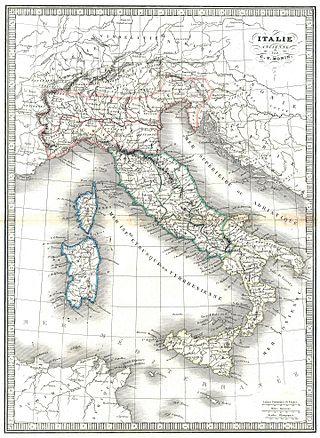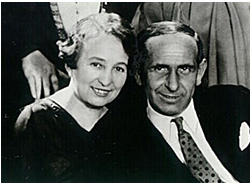You can help expand this article with text translated from the corresponding article in German. (December 2011)Click [show] for important translation instructions.
|
You can help expand this article with text translated from the corresponding article in German. (December 2011)Click [show] for important translation instructions.
|

Austria-Hungary, often referred to as the Austro-Hungarian Empire or the Dual Monarchy, was a multi-national constitutional monarchy in Central Europe between 1867 and 1918. Austria-Hungary was a military and diplomatic alliance of two sovereign states with a single monarch who was titled both emperor of Austria and King of Hungary. Austria-Hungary constituted the last phase in the constitutional evolution of the Habsburg monarchy: it was formed with the Austro-Hungarian Compromise of 1867 in the aftermath of the Austro-Prussian War and was dissolved shortly after Hungary terminated the union with Austria on 31 October 1918.

The Central Powers, also known as the Central Empires, were one of the two main coalitions that fought in World War I (1914–1918). It consisted of Germany, Austria-Hungary, the Ottoman Empire, and Bulgaria; this was also known as the Quadruple Alliance.

Max Reinhardt was an Austrian-born theatre and film director, intendant, and theatrical producer. With his radically innovative and avante garde stage productions, Reinhardt is regarded as one of the most prominent stage directors of the early 20th century.

Georg Wilhelm Pabst was an Austrian film director and screenwriter. He started as an actor and theater director, before becoming one of the most influential German-language filmmakers during the Weimar Republic.

Archduke Joseph August Viktor Klemens Maria of Austria, Prince of Hungary and Bohemia was a Feldmarschall of the Austro-Hungarian Army and for a short period head of state of Hungary. He was a member of the House of Habsburg-Lorraine, the eldest son of Archduke Joseph Karl of Austria (1833–1905) and his wife Princess Clotilde of Saxe-Coburg and Gotha (1846–1927). Joseph August's grandfather had been Palatine Joseph of Hungary (1776–1847), Palatine and Viceroy of Hungary, a younger son of Leopold II, Holy Roman Emperor.

The Habsburg monarchy, also known as Habsburg Empire, was the collection of empires, kingdoms, duchies, counties and other polities that were ruled by the House of Habsburg. From the 18th century it is also referred to as the Danubian monarchy or the Austrian monarchy.

The Entente, or the Allies, were an international military coalition of countries led by France, the United Kingdom, Russia, the United States, Italy, and Japan against the Central Powers of Germany, Austria-Hungary, the Ottoman Empire, and Bulgaria in World War I (1914–1918).

Robert Wiene was a German film director, screenwriter and producer, active during the silent era. He is widely-known for directing the landmark 1920 film The Cabinet of Dr. Caligari and a succession of other expressionist films. Wiene also directed a variety of other films of varying styles and genres. Following the Nazi rise to power in Germany, Wiene, who was of Jewish descent, fled into exile.

Vörösmarty tér or Vörösmarty square is a public square in the Budapest city centre at the northern end of Váci utca.

The Battle of Vittorio Veneto was fought from 24 October to 3 November 1918 near Vittorio Veneto on the Italian Front during World War I. After having thoroughly defeated Austro-Hungarian troops during the defensive Battle of the Piave River, the Italian army launched a great counter-offensive: the Italian victory marked the end of the war on the Italian Front, secured the dissolution of the Austro-Hungarian Empire and contributed to the end of the First World War just one week later. On 1 November, the new Hungarian government of Count Mihály Károlyi decided to recall all of the troops, who were conscripted from the territory of Kingdom of Hungary, which was a major blow for the Habsburg's armies. The battle led to the capture of over 5,000 artillery pieces and over 350,000 Austro-Hungarian troops, including 120,000 Germans, 83,000 Czechs and Slovaks, 60,000 South Slavs, 40,000 Poles, several tens of thousands of Romanians and Ukrainians, and 7,000 Austro-Hungarian loyalist Italians and Friulians.

The Teatro Lirico Giuseppe Verdi is an opera house located in Trieste, Italy and named after the composer Giuseppe Verdi. Privately constructed, it was inaugurated as the Teatro Nuovo to replace the smaller 800-seat "Cesareo Regio Teatro di San Pietro" on 21 April 1801 with a performance of Johann Simon Mayr's Ginevra di Scozia. Initially, the Nuovo had 1,400 seats. In 1821, it became known as the Teatro Grande.

The Balkans theatre or Balkan campaign was a theatre of World War I fought between the Central Powers and the Allies.

The Serbian campaign was a series of military expeditions launched in 1914 and 1915 by the Central Powers against the Kingdom of Serbia during the First World War.

Although considerable conflict took place outside Europe, the European theatre was the main theatre of operations during World War I and was where the war began and ended. During the four years of conflict, battle was joined by armies of unprecedented size equipped with new mechanized technologies, leaving tens of millions dead or wounded.

Werner Johannes Krauss was a German stage and film actor. Krauss dominated the German stage of the early 20th century. However, his participation in the antisemitic propaganda film Jud Süß and his collaboration with the Nazis made him a controversial figure.

Although a member of the Triple Alliance, Italy did not join the Central Powers – Germany and Austria-Hungary – when the war started with Austria-Hungary's declaration of war on Serbia on 28 July 1914. In fact, the two Central Powers had taken the offensive while the Triple Alliance was supposed to be a defensive alliance. Moreover the Triple Alliance recognized that both Italy and Austria-Hungary were interested in the Balkans and required both to consult each other before changing the status quo and to provide compensation for whatever advantage in that area: Austria-Hungary did consult Germany but not Italy before issuing the ultimatum to Serbia, and refused any compensation before the end of the war.

Yugoslavia was a state concept among the South Slavic intelligentsia and later popular masses from the 19th to early 20th centuries that culminated in its realization after the 1918 collapse of Austria-Hungary at the end of World War I and the formation of the Kingdom of Serbs, Croats and Slovenes. However, the kingdom was better known colloquially as Yugoslavia ; in 1929 it was formally renamed the "Kingdom of Yugoslavia".

Jacob Fleck was an Austrian film director, screenwriter, film producer and cameraman. He is noted for his long-standing professional partnership with his wife Luise Fleck who co-directed his films with him.
ARBOS – Company for Music and Theatre in Vienna, Salzburg and Klagenfurt, is a society specialized in the realisation of new forms of theatre especially of projects for contemporary new music theatre, scenic concerts, theatre for young people, theatre concerts, deaf theatre, directed space, theatrical exhibitions and other forms of the arts.

The Ljubljana Slovene National Theatre Opera and Ballet, or shortly Ljubljana SNG Opera and Ballet, is Slovenia's national opera and ballet company. Its seat is the Ljubljana Opera House at 1 Župančič Street in Ljubljana. The Ljubljana Slovene National Theatre Opera and Ballet was founded in 1918. It is now a subsection of the Slovene National Drama Theatre in Ljubljana (Slovensko narodno gledališče and has about 50 dancers. Since 2013, its director has been the lawyer Peter Sotošek Štular, and its artistic director the opera stage director Rocc.